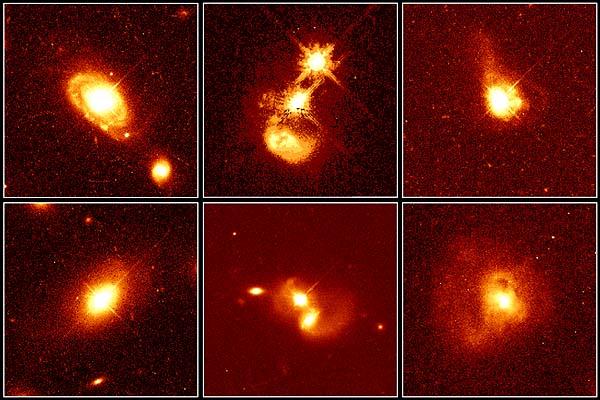A Quasar Portrait Gallery

Explanation:
QUASARs (QUASi-stellAR objects)
lie near
the edge of the observable Universe.
Discovered in 1963,
astronomers were astounded - to be
visible at such extreme
distances of billions of light-years they must emit prodigious
amounts of energy. Where does the energy come from?
Many believe
the quasar's central engine is a giant black hole
fueled by tremendous amounts of infalling gas, dust, and stars.
This recently released gallery of quasar portraits from the Hubble Space
Telescope offers a look at their local neighborhoods: the quasars themselves
appear as the bright star-like objects with diffraction spikes.
The images in the center and right hand columns reveal quasars
associated with disrupted colliding and merging galaxies
which should provide
plenty of debris to feed a hungry
black hole.
Yet, in the left hand column a quasar is seen at the
center of an otherwise normal looking spiral (above) and
elliptical galaxy.
Whatever the secret of the quasar's energy,
all these sites must provide fuel for its central engine.
Authors & editors:
Robert Nemiroff
(MTU) &
Jerry Bonnell
(USRA)
NASA Web Site Statements, Warnings,
and Disclaimers
NASA Official: Jay Norris.
Specific
rights apply.
A service of:
LHEA at
NASA /
GSFC
& Michigan Tech. U.

